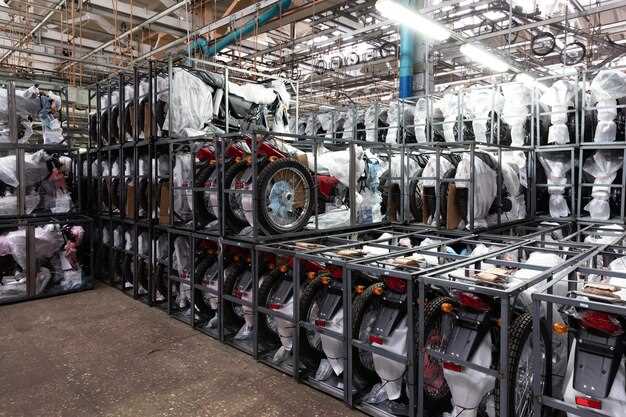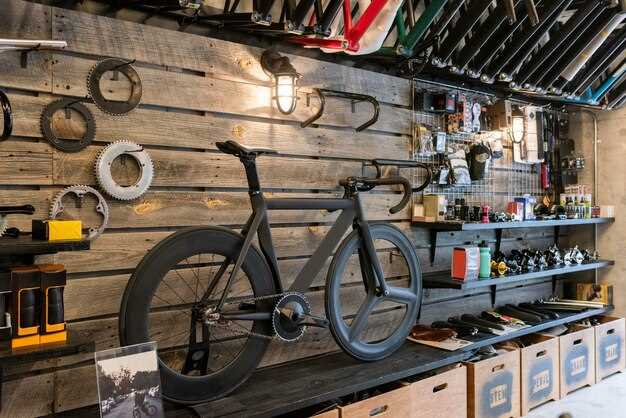Sustainable storage and shipping of motorcycle parts


The motorcycle industry is evolving, and so are the practices associated with shipping and storing motorcycle parts. As the demand for eco-friendly solutions grows, manufacturers and retailers must adapt to sustainable practices that minimize their environmental impact. This shift is not merely a trend but a necessity, as consumers increasingly seek products that reflect their values, including sustainability and responsibility.
Effective packaging plays a crucial role in the sustainable storage and shipping of motorcycle parts. Traditional materials often contribute to waste and pollution, making it essential to explore eco-friendly alternatives. Utilizing recyclable and biodegradable materials not only reduces the carbon footprint associated with the production and disposal of packaging but also demonstrates a commitment to a greener future.
Incorporating efficient logistics into the shipping process is another vital aspect of sustainable practices. By optimizing routes and employing energy-efficient transportation methods, companies can significantly lower emissions. Moreover, proper inventory management ensures all motorcycle parts are stored in a way that minimizes waste and streamlines the shipping process. Together, these strategies foster an eco-conscious approach that benefits both businesses and the environment.
Optimizing Inventory Management for Eco-Friendly Parts Logistics

Effective inventory management plays a crucial role in the logistics of eco-friendly motorcycle parts transportation. Streamlining these processes not only enhances operational efficiency but also reduces environmental impact. By adopting innovative inventory strategies, businesses can minimize waste, lower carbon emissions, and facilitate sustainable shipping practices.
Implementing a just-in-time (JIT) inventory system allows companies to decrease the volume of stored parts while ensuring availability for demand. This approach reduces excess stock, lessening the need for large storage spaces, which often consume energy and resources. Additionally, JIT inventory supports efficient shipping schedules, further decreasing transportation-related emissions.
Utilizing advanced inventory management software can significantly improve tracking and forecasting accuracy. These technologies enable businesses to monitor part availability in real-time, optimize reorder levels, and anticipate market trends. Accurate forecasting reduces overproduction and excess inventory, leading to a more efficient eco-part logistics system.
Employing modular storage solutions enhances space utilization and facilitates easier access to parts, reducing the time and energy spent handling inventory. This not only lowers operational costs but also minimizes the carbon footprint associated with moving and handling motorcycle parts.
Collaborating with suppliers who share a commitment to sustainability is essential for eco-friendly logistics. Establishing partnerships with local suppliers can diminish shipping distances, thereby cutting down on fossil fuel consumption. Moreover, adopting eco-friendly packaging materials in the shipping process further reinforces a commitment to environmental sustainability.
Incorporating renewable energy sources into warehouse operations, such as solar panels for power, can significantly reduce the carbon footprint of inventory management. This commitment to sustainability not only meets regulatory requirements but also appeals to environmentally conscious consumers, enhancing brand loyalty.
Regular audits and assessments of inventory processes are crucial for identifying improvement areas. By evaluating the effectiveness of current practices, businesses can adapt their inventory management strategies to better align with eco-friendly goals, ensuring continuous advancement toward sustainable parts logistics.
Choosing Biodegradable and Recyclable Packaging Materials

In the context of shipping motorcycle parts, selecting the right packaging materials plays a crucial role in promoting sustainability. Opting for biodegradable and recyclable options not only minimizes environmental impact but also aligns with the growing eco-consciousness among consumers and manufacturers.
Biodegradable materials are designed to decompose naturally over time, reducing landfill waste. When these materials break down, they return valuable nutrients to the soil, supporting ecological balance. Common biodegradable packaging options include cornstarch-based foams and compostable paper products. These materials are an excellent choice for cushioning motorcycle parts during shipping, ensuring protection while remaining environmentally friendly.
Recyclable packaging, on the other hand, can be repurposed into new products after its initial use. By choosing materials like cardboard and recycled plastics, companies can significantly reduce their carbon footprint. Encouraging customers to recycle packaging after receiving their motorcycle parts helps create a circular economy. Clear instructions on recycling can further enhance awareness and participation.
Integrating biodegradable and recyclable materials in the shipping process leads to a more sustainable practice overall. By prioritizing eco-friendly solutions, businesses not only fulfill their responsibility to the environment but also foster loyalty among customers who value sustainability. In an industry where performance and reliability are key, the materials that protect these parts during transportation should reflect the same commitment to quality and responsibility.
Implementing Carbon-Neutral Shipping Solutions in the Motorcycle Industry
The motorcycle industry faces significant challenges regarding environmental impact, especially in logistics. Transitioning to carbon-neutral shipping solutions is essential for mitigating this impact and promoting sustainability. One effective approach is using eco-friendly packaging materials designed to minimize waste. These materials should be biodegradable or recyclable, ensuring that the packaging used for motorcycle parts does not contribute to landfill overflow.
In addition to eco-friendly packaging, implementing efficient shipping practices plays a crucial role in achieving carbon neutrality. This involves optimizing transportation routes and consolidating shipments to reduce the number of trips required. By utilizing technology like route optimization software, companies can significantly lower their carbon footprint associated with transportation.
Collaboration with shipping companies that prioritize green logistics is pivotal. Many logistics providers now offer carbon offset programs that compensate for emissions generated during shipping by investing in renewable energy projects or reforestation. Partnering with these providers helps motorcycle manufacturers and retailers take responsibility for their shipping impact while delivering parts efficiently.
Furthermore, the incorporation of electric vehicles for last-mile delivery can greatly contribute to a reduction in greenhouse gas emissions. Investing in a fleet of electric delivery vehicles allows companies to demonstrate their commitment to sustainability while ensuring that motorcycle parts reach customers with minimal environmental impact.
Finally, educating customers about sustainable practices when receiving and disposing of packaging material can foster a culture of eco-consciousness within the motorcycle community. Providing guidelines on how to recycle or repurpose packaging enhances the overall impact of these shipping solutions, encouraging consumers to participate in sustainable practices actively.